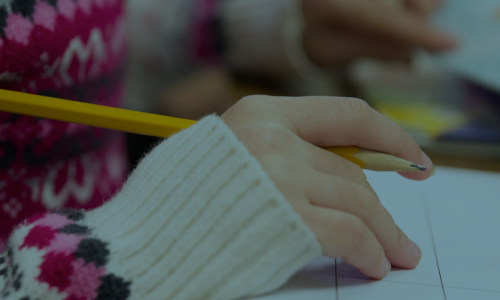

Learning during COVID-19: Reading and math achievement in the 2020-2021 school year
To what extent did COVID-19 disruptions affect student achievement in 2020-2021, and which students have been most affected? New NWEA research aims to provide insight to inform leaders working to support recovery: using data from 5.5 million students in grades 3-8 who took MAP Growth assessments in reading and math, this brief examines how gains across the 2020-21 school year and student achievement in spring 2021 compare to pre-pandemic trends.
Topics: COVID-19 & schools, Equity


The purpose of this technical appendix is to share more detailed results and to describe more fully the sample and methods used in the research included in the brief, Learning during COVID-19: Reading and math achievement in the 2020-21 school year.
Two research questions were investigated in this brief:
1. How do gains across the 2020-21 school year compare to pre-pandemic trends?
2. How does student achievement in spring of 2021 compare to pre-pandemic levels?
Topics: COVID-19 & schools, Equity


The impact of disengaged test taking on a state’s accountability test results
This study investigated test-taking engagement on a large-scale state summative assessment. Overall, results of this study indicate that disengagement has a material impact on individual state summative test scores, though its impact on score aggregations may be relatively minor.
By: Steven Wise, Jonghwan (Jay) Lee, Sukkeun Im
Topics: Equity, Measurement & scaling, School & test engagement


In this webinar offered in partnership by the Alliance for Excellent Education, NWEA, the National Urban League, and Unidos US, learn about new NWEA research on academic trends of students during the past school year compared to a more typical school year, what these findings suggest about widening education inequality, recommendations for states and districts on how to use recent federal aid to transform education for historically underserved students, and the perspective a a district leader on what their district is doing to support students as they return to school.
By: Michael Conner, PhD, Beth Tarasawa, Deb Delisle, Janet Murguía, Chris Minnich, Marc Morial
Topics: Equity, COVID-19 & schools


Understanding the initial educational impacts of COVID-19 on communities of color
This report examines the academic impact of the COVID-19 pandemic on Black, Indigenous, and people of color (BIPOC) students, with the goal of documenting achievement trends to provide leaders and policymakers with evidence to guide action to address educational inequities for BIPOC students.
By: Megan Kuhfeld, Erik Ruzek, Karyn Lewis, James Soland, Angela Johnson, Beth Tarasawa, Lindsay Dworkin
Topics: Equity, COVID-19 & schools


Variation in respondent speed and its implications: Evidence from an adaptive testing scenario
The more frequent collection of response time data is leading to an increased need for an understanding of how such data can be included in measurement models. Models for response time have been advanced, but relatively limited large-scale empirical investigations have been conducted. We take advantage of a large data set from the adaptive NWEA MAP Growth Reading Assessment to shed light on emergent features of response time behavior.
By: Benjamin Domingue, Klint Kanopka, Ben Staug, James Soland, Megan Kuhfeld, Steven Wise, Chris Piech
Topics: School & test engagement, Innovations in reporting & assessment


A method for identifying partial test-taking engagement
This paper describes a method for identifying partial engagement and provides validation evidence to support its use and interpretation. When test events indicate the presence of partial engagement, effort-moderated scores should be interpreted cautiously.
By: Steven Wise, Megan Kuhfeld
Topics: Measurement & scaling, Innovations in reporting & assessment, School & test engagement


